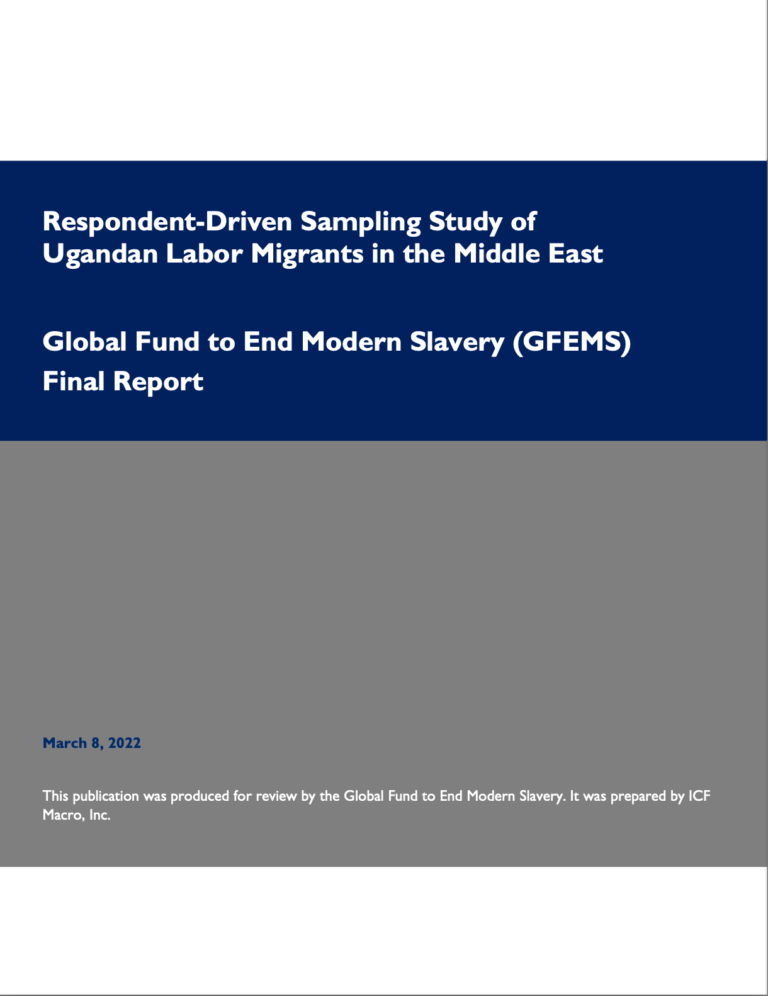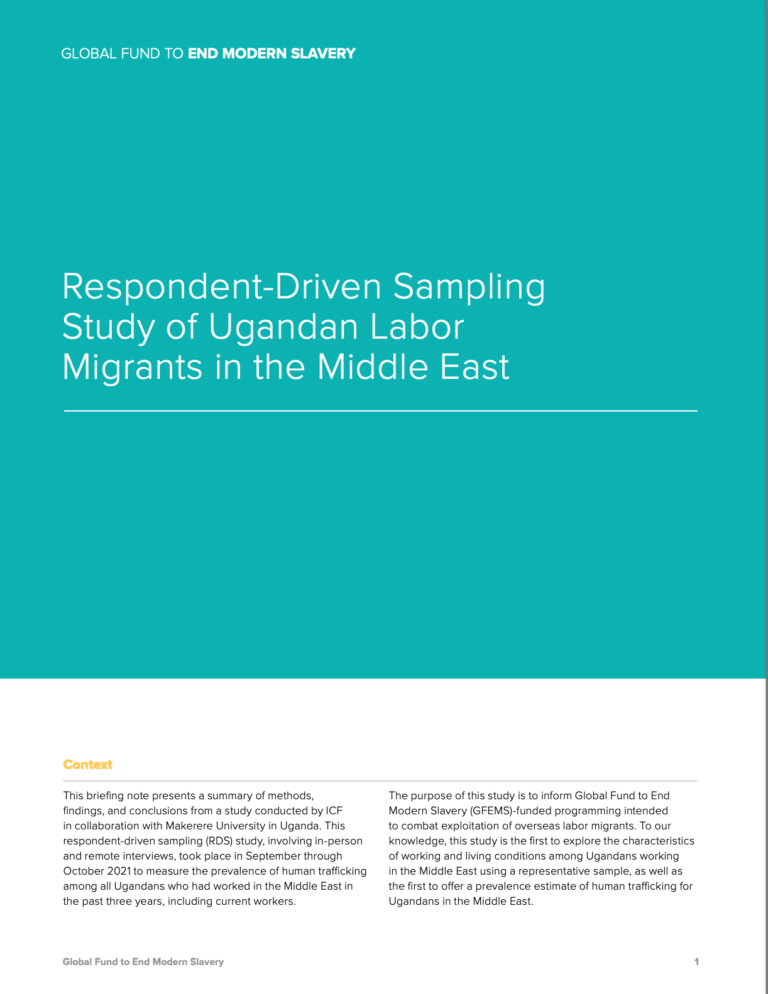This study was carried out by ICF and the Department of Social Work and Social Administration, Makerere University, who conducted a respondent-driven sampling (RDS) study in Uganda. The RDS study targeted migrant workers who currently work in the Middle East or who have worked in the Middle East in the past 3 years to explore the prevalence and characteristics of human trafficking experienced during their recruitment and employment.
To our knowledge, this study is the first to explore the characteristics of working and living conditions among Ugandans working in the Middle East using a representative sample, as well as the first to offer a prevalence estimate of human trafficking for Ugandans in the Middle East.
The purpose of this study is to inform Global Fund to End Modern Slavery-funded programming on more effective methods to reduce the risk of human trafficking and support survivors of human trafficking in Uganda.
The study found that the majority (89%) of migrants reported experiences consistent with human trafficking and more than one-fourth (27%) of migrants experienced severe exploitation, defined as threats of or actual violence or psychological abuse. However, the study also found that the prevalence of human trafficking and severe exploitation were lower among migrants who experienced fewer instances of unethical recruitment. In fact, regression analysis indicates that with each additional unethical recruitment practice experienced, the odds of both human trafficking and severe exploitation nearly triple. This suggests that efforts to promote more ethical recruitment processes may help to reduce the prevalence of trafficking among Ugandan migrants in the Middle East.


